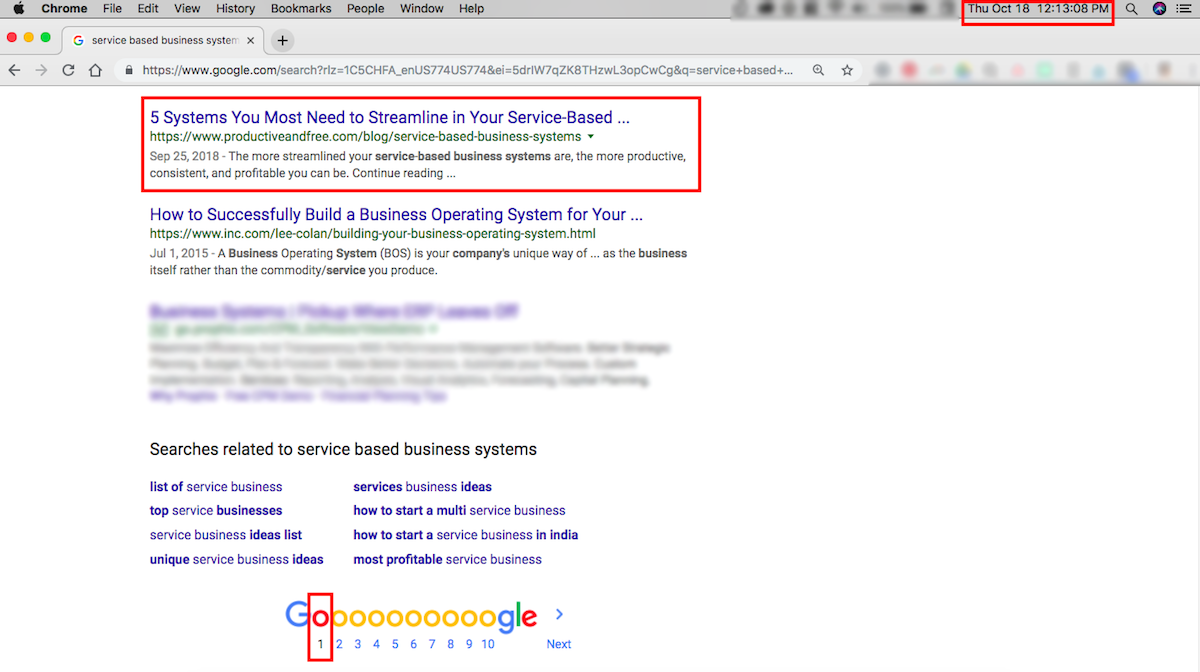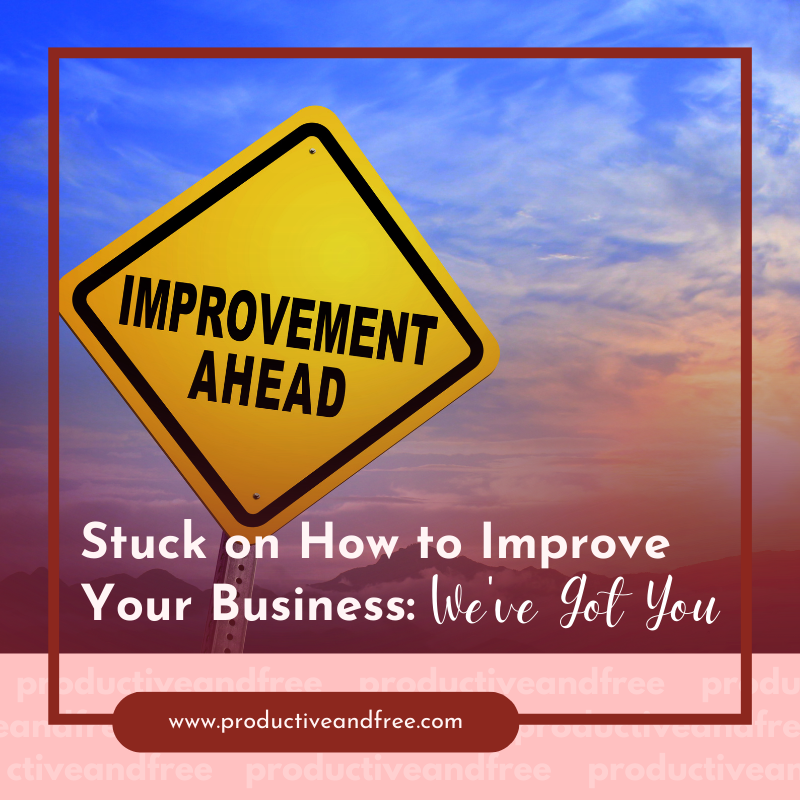Blog Case Study: First Page of Google Search in 3 Weeks
Let me know if you’ve heard of this joke before:
The best place to hide a dead body is on page two of Google.
-Unknown
It’s certainly one of the nerdiest but funniest jokes out there and if you’re an online marketer, it probably hit a nerve, am I right?
It’s completely relatable because it’s true—the first page of Google search is where all (or most) of the magic happens.
In fact, Google is responsible for more than 90% of all internet searches and three out of four internet users never scroll past the first page of results.
While this might indicate that everyone is now competing for those highly coveted first-page spots (which they probably are), it’s still possible to get there yourself even without spending money on advertising, using automated marketing tools, or having a large following.
I know because I’ve done it myself.
A few weeks ago, I posted an article on my blog, 5 Systems You Most Need to Streamline in Your Service-Based Business, and in only three weeks I was surprised to discover that it reached the first page of Google search results.
Here are the results for the keywords “service based business systems.”
And here are the results for “systems for service based businesses.”
No, I didn’t pay for ads or use automated social media tools (even for Pinterest) to promote this blog post, and I don’t have a large following.
I do have to say though that I use Squarespace for my blog and contrary to what others have said about this platform (that it’s lacking in search engine optimization or SEO features or capabilities), Squarespace already has built-in SEO features and it uses SEO best practices.
All in all, I just used standard SEO strategies that anyone could follow:
01. I conducted keyword research
I researched and landed on the keywords “service-based business systems” or “systems for service based businesses” for this blog post.
I had already posted an article about creating business systems so this time, I wanted to share five important systems for service-based businesses.
I also chose these specific keywords because I’m a productivity coach and I help business owners (including service-based business owners, of course) set up systems to help them streamline and scale their business.
02. I added the keywords strategically
I added the keywords to the filename/description of the images, within the blog post body, in the excerpt, and as tags. I even made the blog post URL: /blog/service-based-business-systems.
The only places I didn’t add the keywords were in the headings (because I listed the five systems as the headings instead) and in the blog category (because my blog doesn’t have its own “systems” category, only “business”).
03. I published a high quality blog post
The blog post has a 1,200+ word count, which isn’t too long compared to my other blog posts, but I did make sure to explain the five systems thoroughly using a list format.
I made the post scannable by making use of headers, starting it with an introduction, and ending it with a conclusion. I mentioned recommended tools that can help create these systems and linked to those resources as well (with an affiliate disclosure, of course).
I also created a handy infographic listing the five systems in case anyone wanted to pin them to Pinterest. I linked to related posts under my blog’s “business” category. And I encouraged comments, although no one has commented on the post just yet.
While I did not create a content upgrade specifically for this post, I did link to a related lead magnet about creating business systems.
04. I’ve been blogging consistently
This is the one thing I’ve done that’s outside of publishing and optimizing this specific blog post—I’ve been blogging consistently.
Prior to my month-long vacation last August, I had been blogging once a week but after returning from my break, I increased my blogging frequency to thrice a week.
I believe this is one of the biggest factors that helped search engines recognize my blog/website as an “active” website and therefore be more inclined to rank it and see it as a relevant, reliable, and timely source of information.
What I could’ve done better
Even with the handful of SEO strategies I implemented to publish this blog post, there are still a lot of things I could’ve done better.
I usually monitor only my top blog posts at the beginning of each month which is why this was completely unexpected. In fact, if I wasn’t writing a different article about SEO, I wouldn’t even find out that this blog post reached the first page of Google search for the exact keywords I’ve been targeting.
Going forward, I could monitor my blog posts and their keywords more closely to determine which of my strategies are actually working better than others.
In terms of marketing the blog post, I feel like I could also improve in this area because I only did the following:
I sent an email to my list with links to the blog posts I published that week.
I manually posted the pin and infographic to Pinterest (no automation).
I shared the blog post once in my Instagram Stories.
I could also try to reduce the sizes of the blog images I use so that the pages could load a bit faster.
Lastly, another factor that helps improve SEO is getting backlinks from authoritative sites so this is definitely an area I could work on in the future.
Conclusion
Getting on the first page of Google is possible even without ads, automated marketing tools, or a large following. Whether it takes three weeks, three months, or three years, consider conducting solid research, implementing smart SEO strategies, and providing consistent high quality content.
Share in the comments below: What’s your biggest takeaway from this case study? How are your SEO strategies treating your blog? What tips from this article can you implement immediately?















